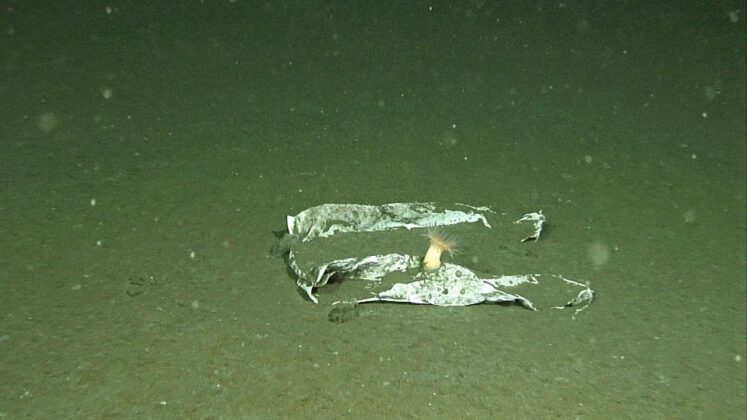


TOKYO (ANN/THE JAPAN NEWS) – Vast quantities of plastic waste, some dating back decades, have been discovered on the deep-sea floor surrounding Japan, according to a study by the Japan Agency for Marine-Earth Science and Technology (JAMSTEC).
The findings come as the Intergovernmental Negotiating Committee (INC) resumed talks in Switzerland on drafting a global treaty to tackle plastic pollution.
Conducted between 2019 and early 2025, the JAMSTEC probe used the manned submersible Shinkai 6500 to explore deep-sea sites including the Japan Trench, Sagami Bay, Suruga Bay, waters off Shikoku and the Noto Peninsula. Plastic debris was found at depths ranging from 800 to 7,000 metres.
“It’s deeply shocking that so much plastic waste was confirmed in ocean waters tens of kilometres from the coast,” said JAMSTEC biological oceanographer Ryota Nakajima.
The study revealed concentrations of 10,000 to 40,000 plastic items per square kilometre in some areas. Around 70 to 80 per cent of the waste consisted of polyethylene and plastic shopping bags, with the rest made up of bottles and food containers.
Because of low light and cold temperatures in deep waters, plastic waste decomposes extremely slowly. Researchers even found plastic products dating back to the Showa era (1926–1989).
Labels on some items indicated that plastic debris had originated not only from Japan but also from China, South Korea and Southeast Asia.
The study also confirmed large amounts of microplastics dispersed in the water. These tiny plastic fragments can be ingested by marine life and may pose risks to human health through the food chain.
Nakajima stressed the need for international cooperation to reduce plastic production and consumption. “The world is connected by the ocean, in which a massive amount of plastic waste is coming and going. To keep the ocean unpolluted, countries and regions must cooperate. It’s hopeless otherwise,” he said.
Delegates at the INC meeting are debating whether the global plastics treaty should include legally binding controls on plastic production.
-- Courtesy of Borneo Bulletin